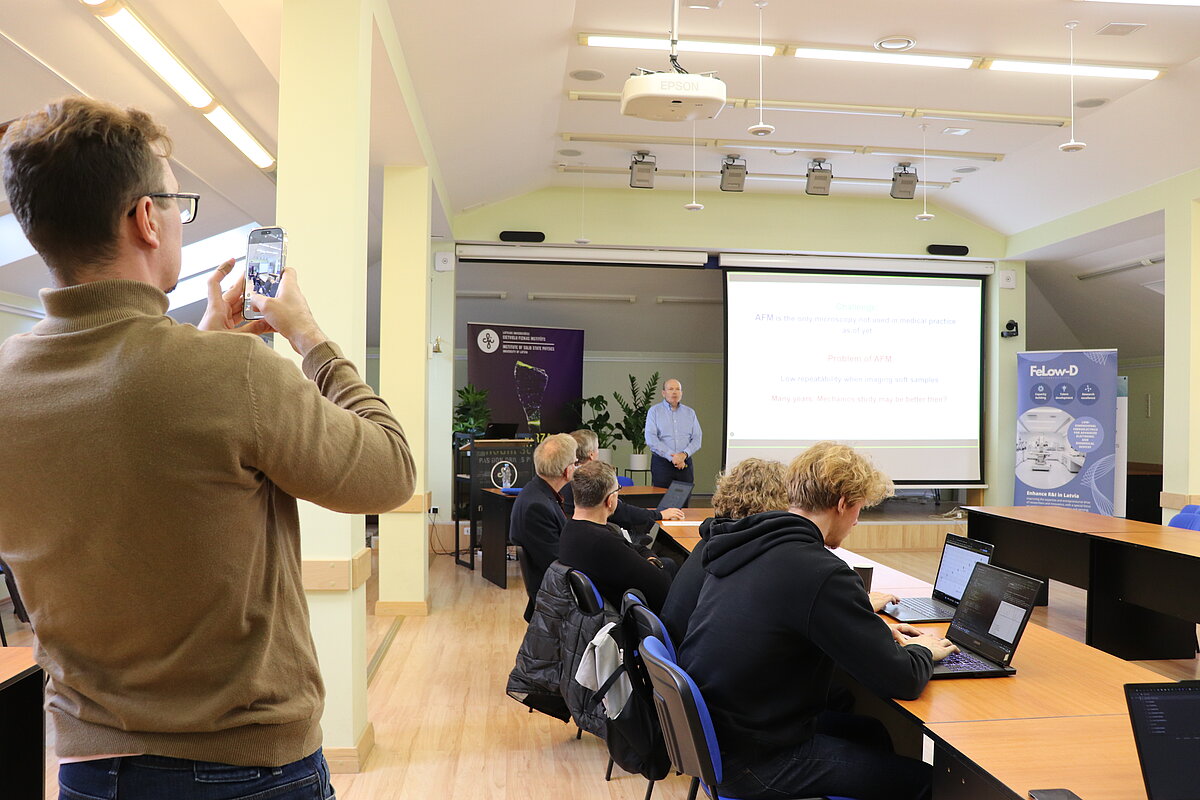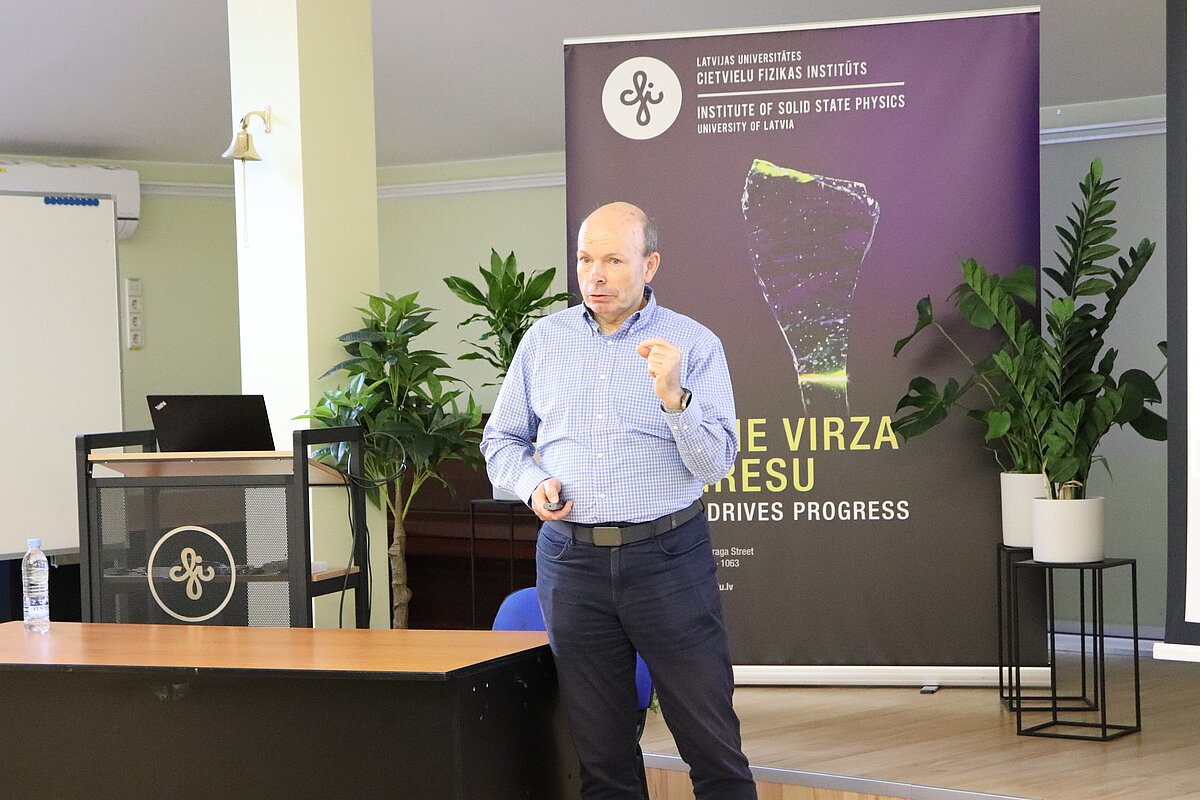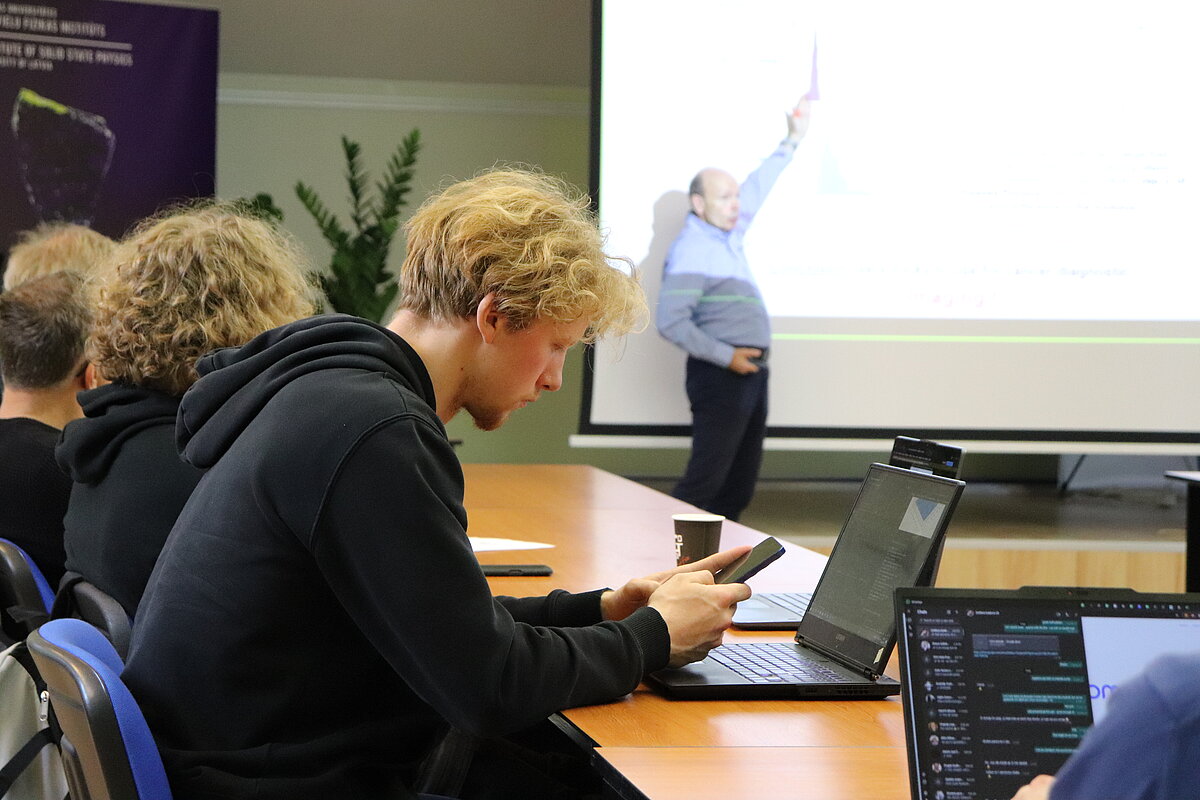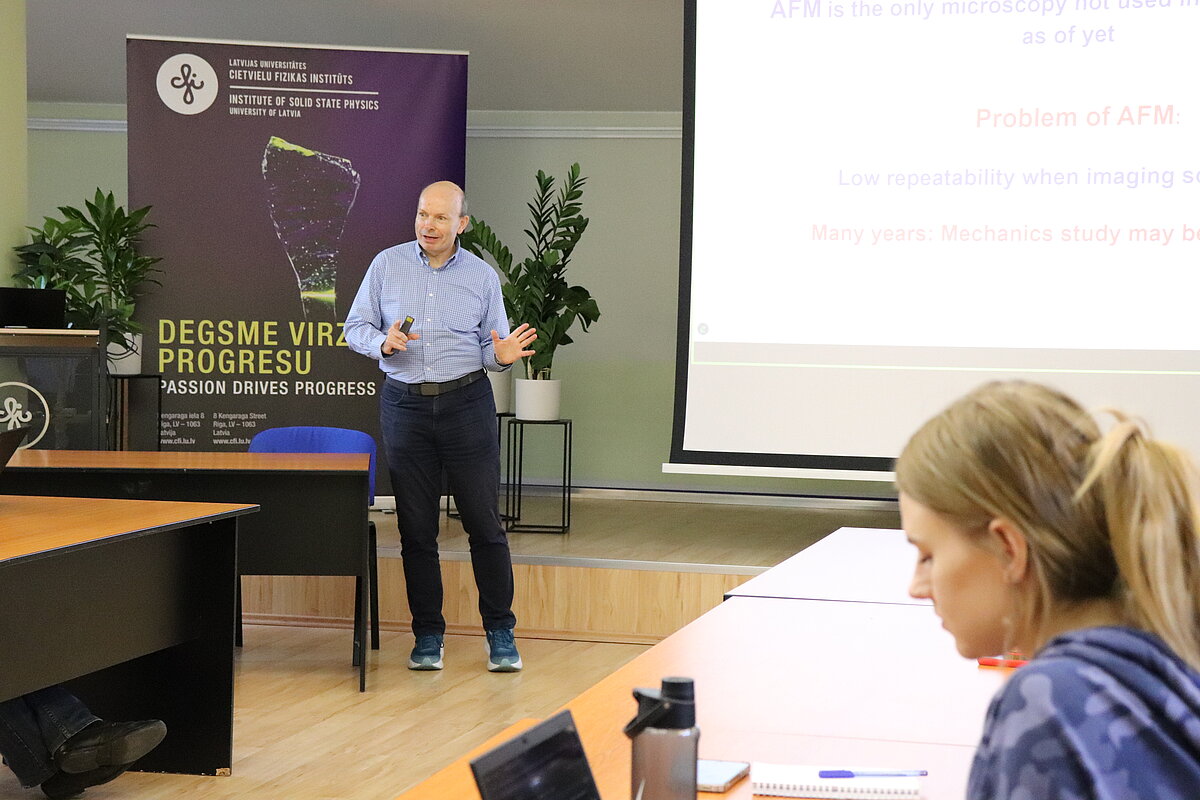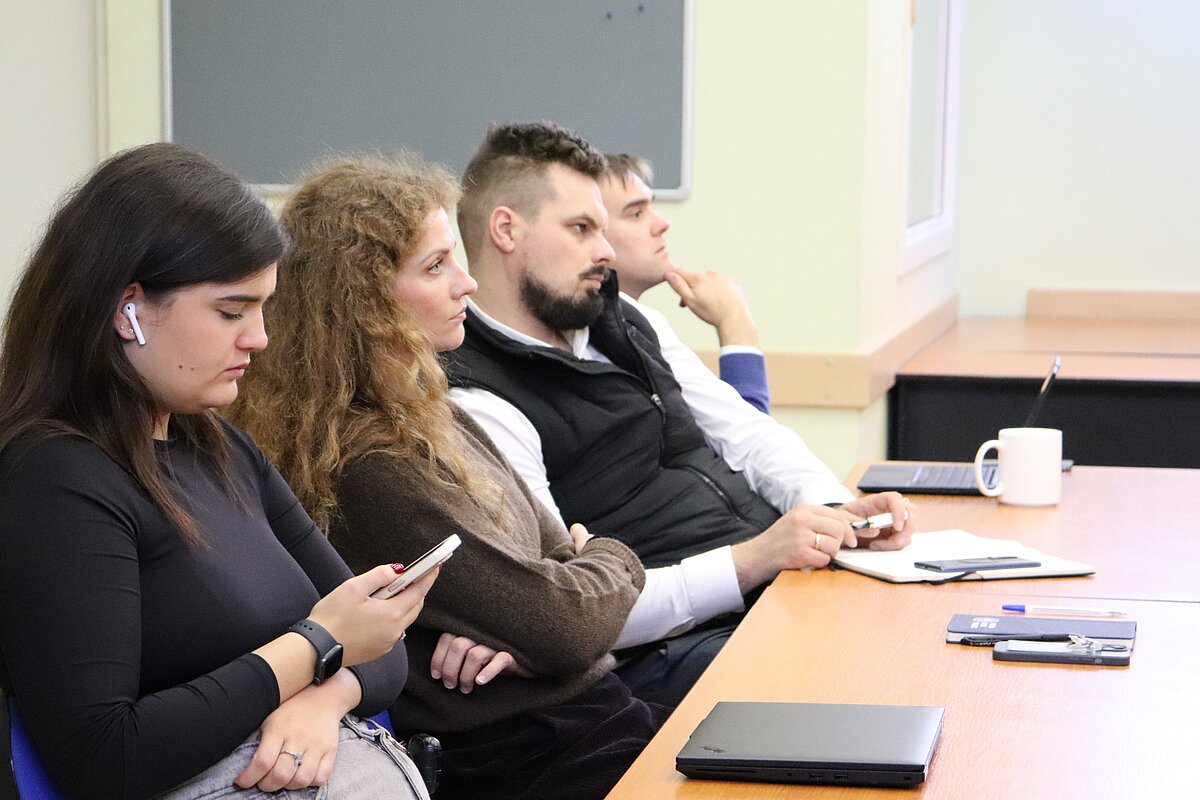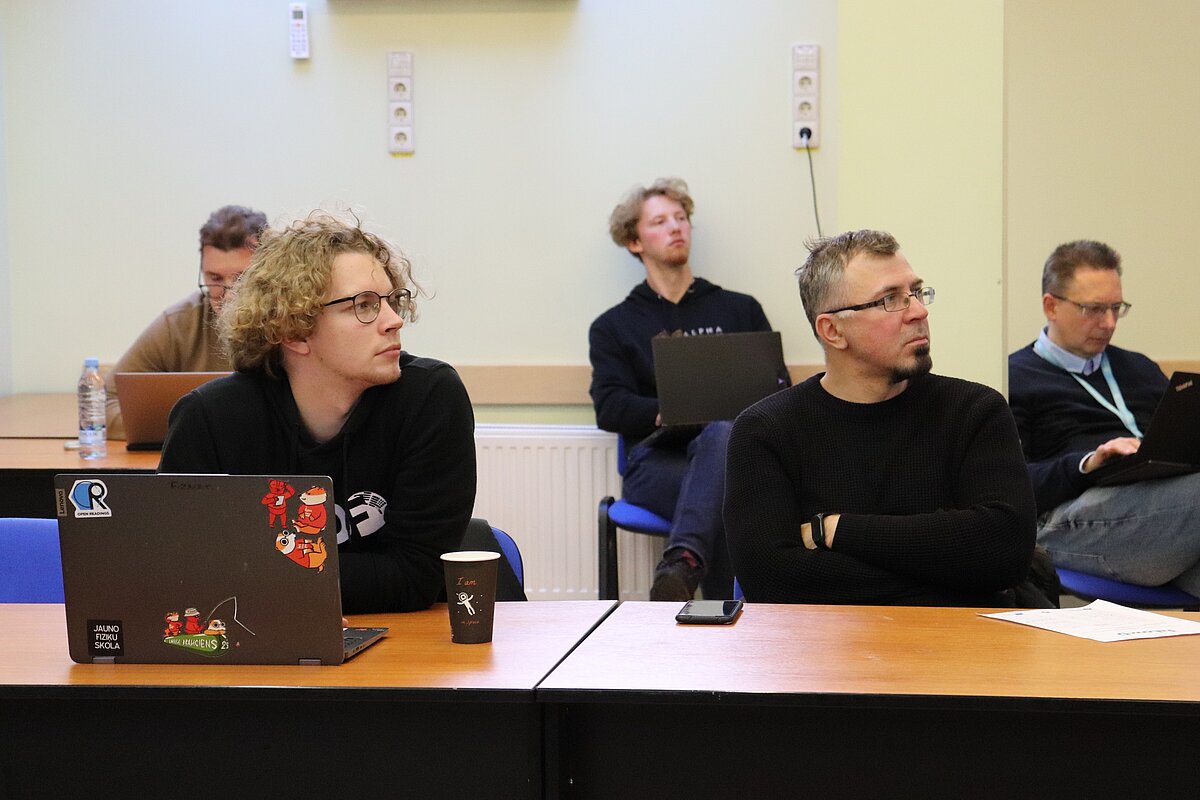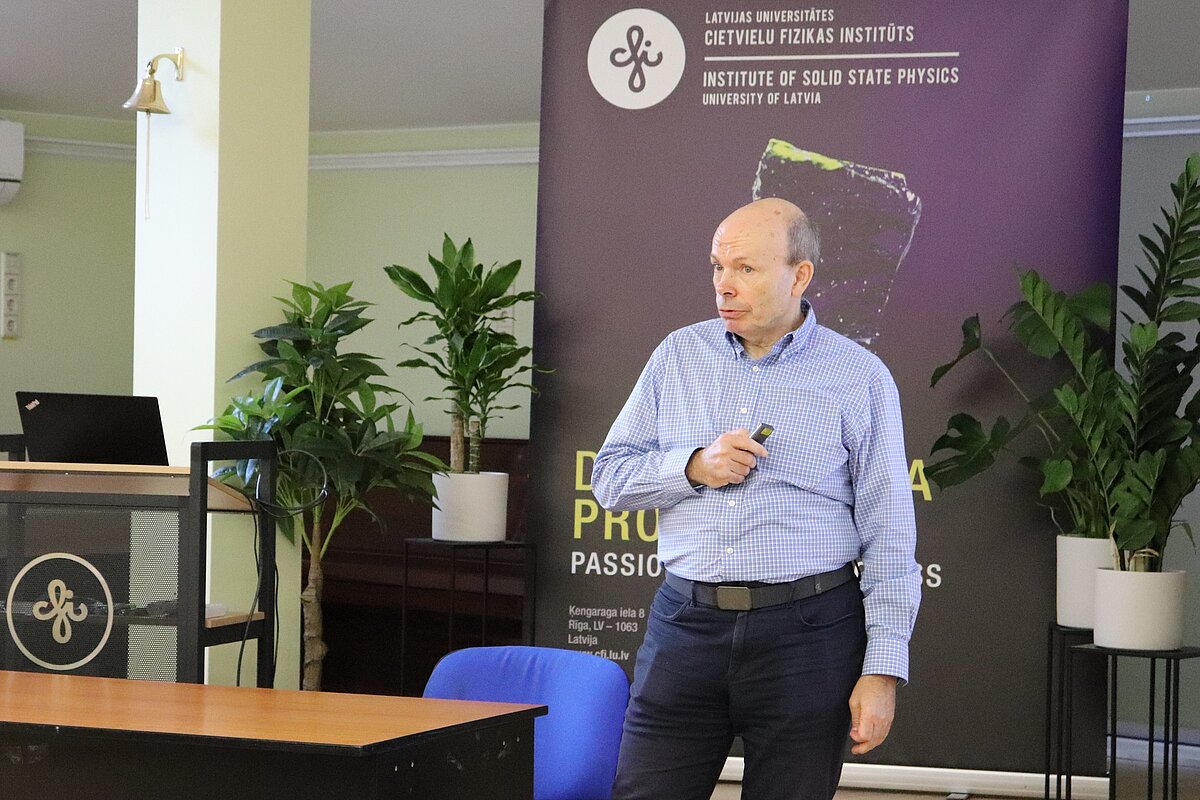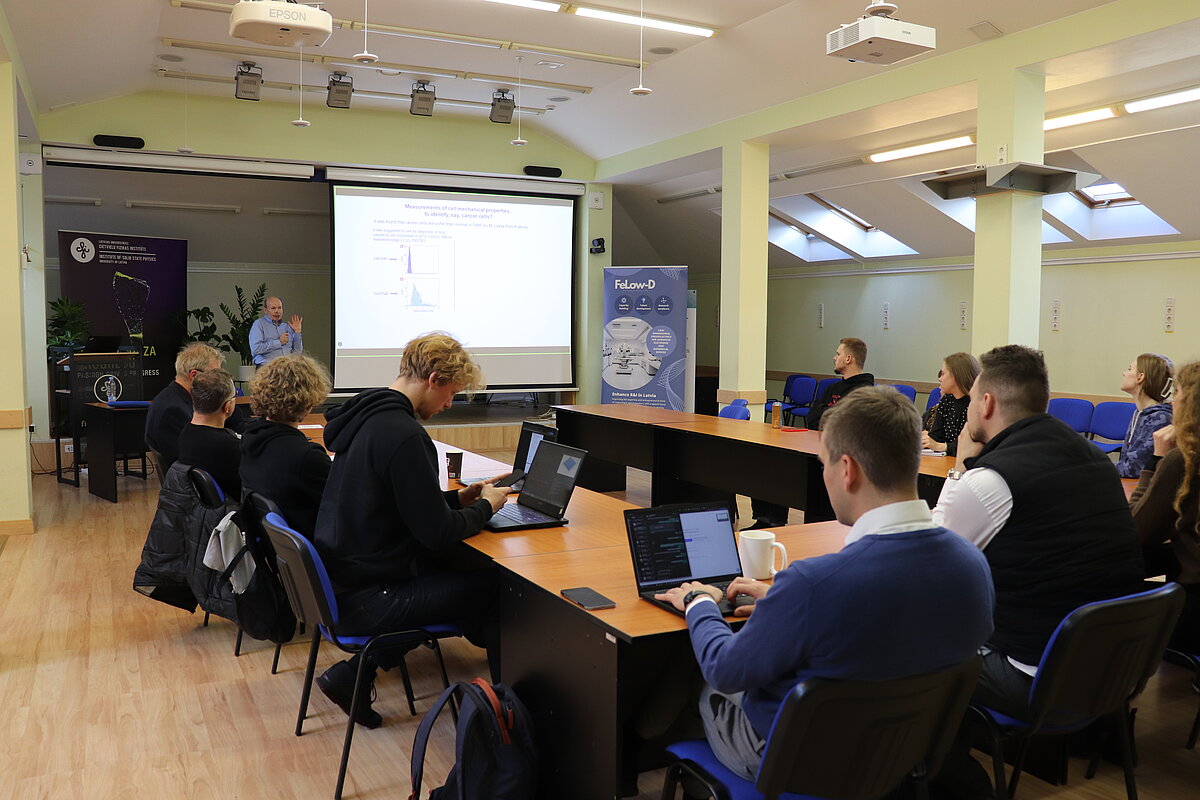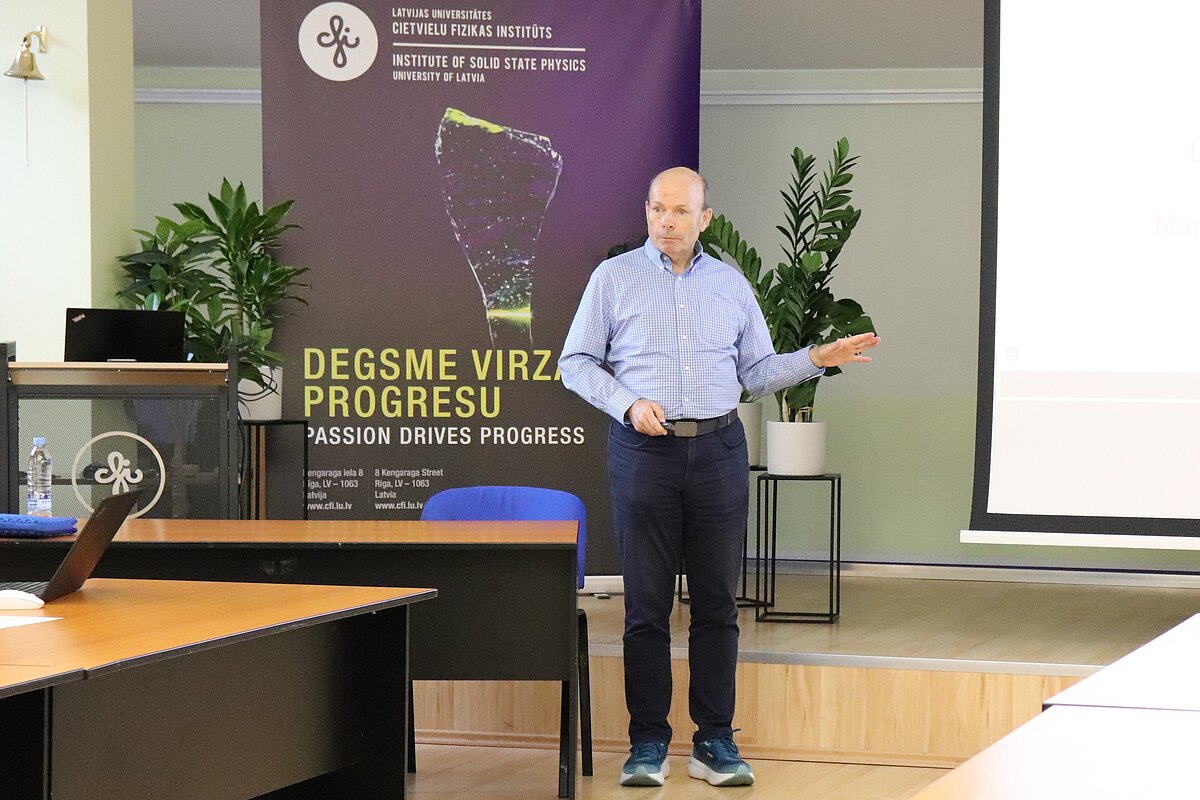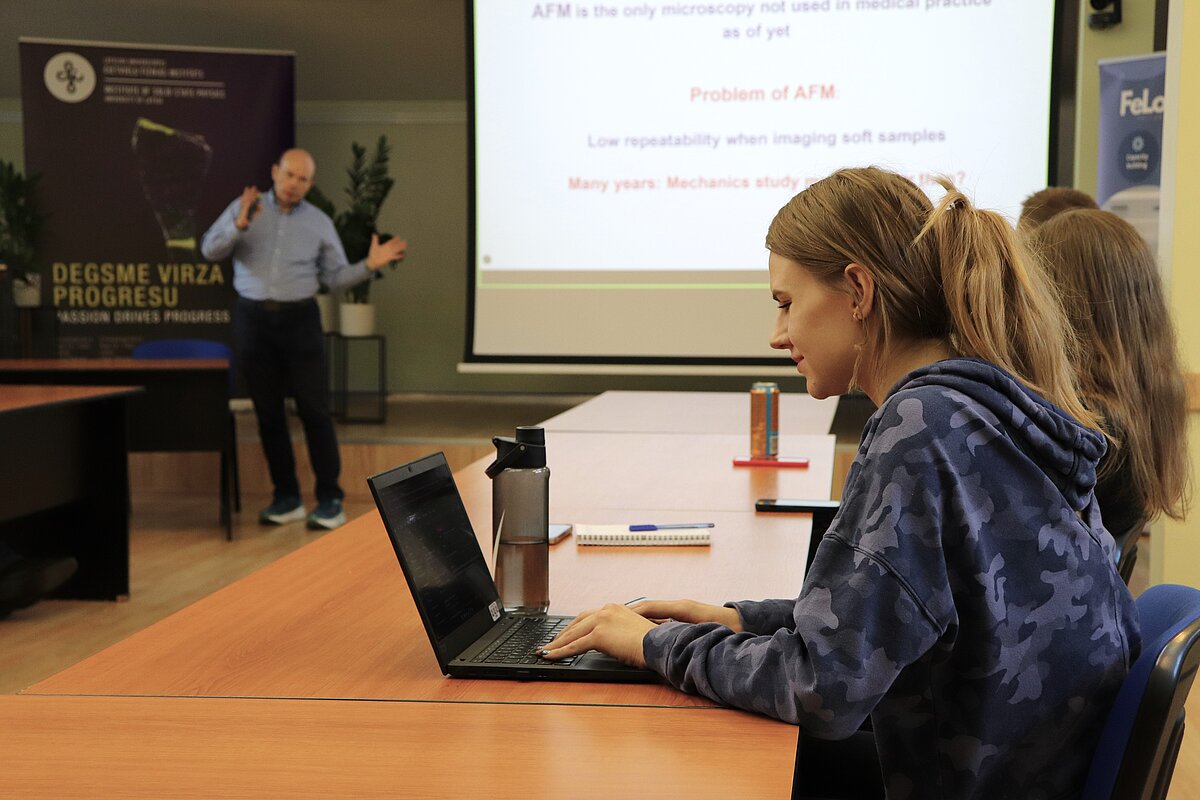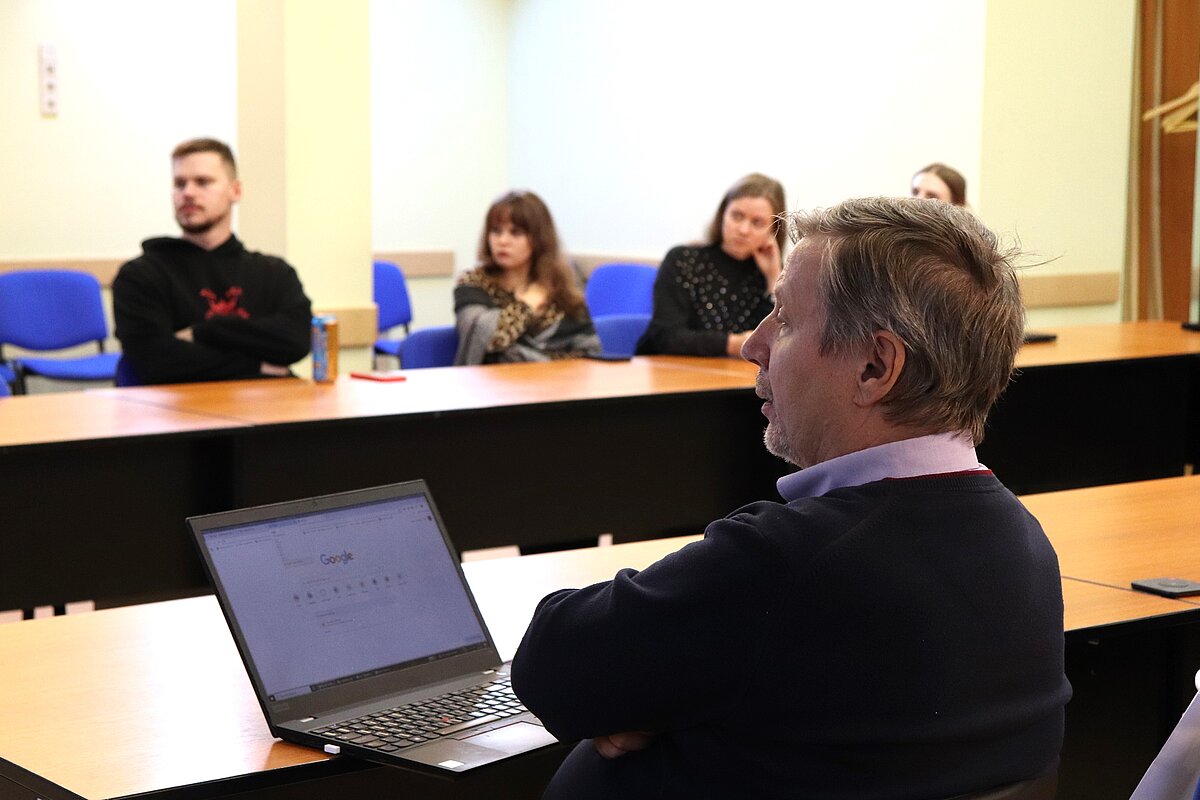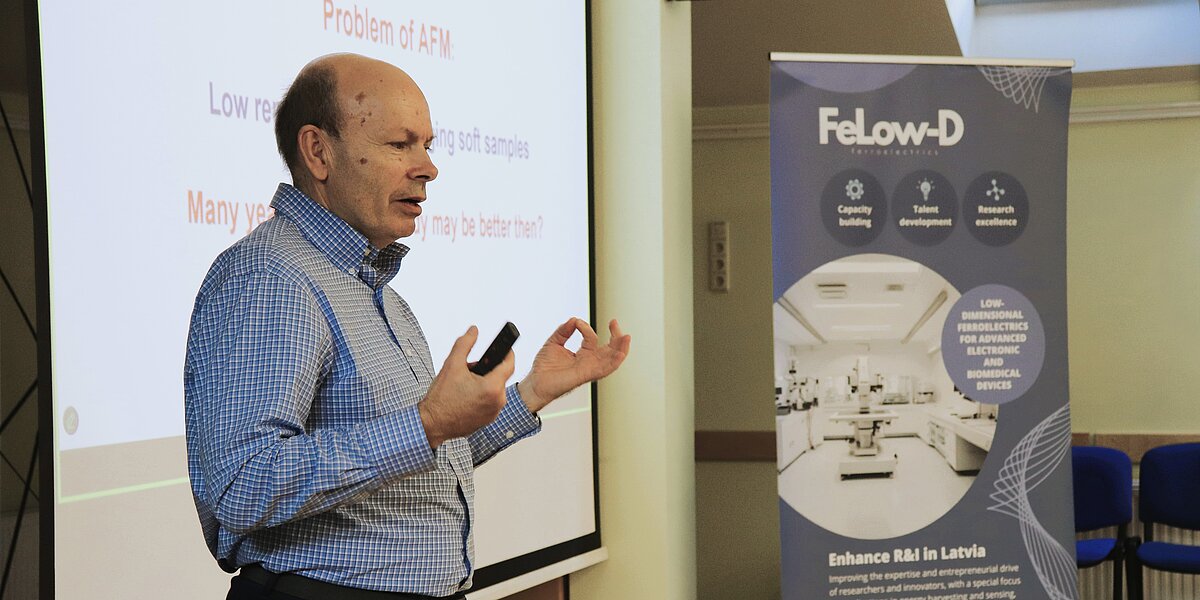
On 7 October, the Institute of Solid State Physics, University of Latvia (ISSP UL) hosted a FeLow-D seminar featuring Professor Igor Sokolov from the Tufts University (Boston, USA) an internationally recognized expert in nanomechanics and biomedical engineering. His lecture “Scanning Probe Microscopy: Towards Biomedicine," presented the latest developments in Atomic Force Microscopy (AFM) as a transformative tool for medical diagnostics and bioinformatics.
Prof. Sokolov introduced Ringing Mode – a novel AFM modality that, when combined with machine learning, enables the identification of cancer “signatures” at the single-cell level. The technique allows accurate discrimination between malignant and healthy cells across several cancer types, opening new opportunities for early diagnosis and precision medicine.
The seminar was organized under the HE ERA Chair project FeLow-D, which aims to establish ISSP UL as a European center of excellence in low-dimensional ferroelectrics and their applications in electronics and biomedicine. Led by Dr. Andrei Kholkin, FeLow-D ERA Chair holder, the project bridges materials science, nanotechnology, and biomedical research fostering innovation, talent development, and collaboration across the European Research Area.
The event also marks a milestone in the research infrastructure renewal at ISSP UL. Two state-of-the-art Atomic Force Microscopes are scheduled for installation in 2026, reinforcing the institute’s capacity for advanced nanoscale characterization and MedTech applications. These instruments will support both FeLow-D and wider Latvian R&I initiatives in energy, sensors, and healthcare technologies.
“Professor Sokolov’s pioneering work exemplifies the cross-disciplinary vision we pursue within FeLow-D – merging physics, materials science, and biomedicine to serve future technologies and society,” said Dr. Zolotarjovs, head of the Optical Materials Laboratory.
The seminar attracted both seasoned researchers and students interested in next-generation nanodiagnostics and smart biomedical systems, strengthening ISSP UL’s role as an open innovation hub in advanced materials and ferroelectric technologies.
For more information on the project and upcoming events, visit the FeLow-D project website.
